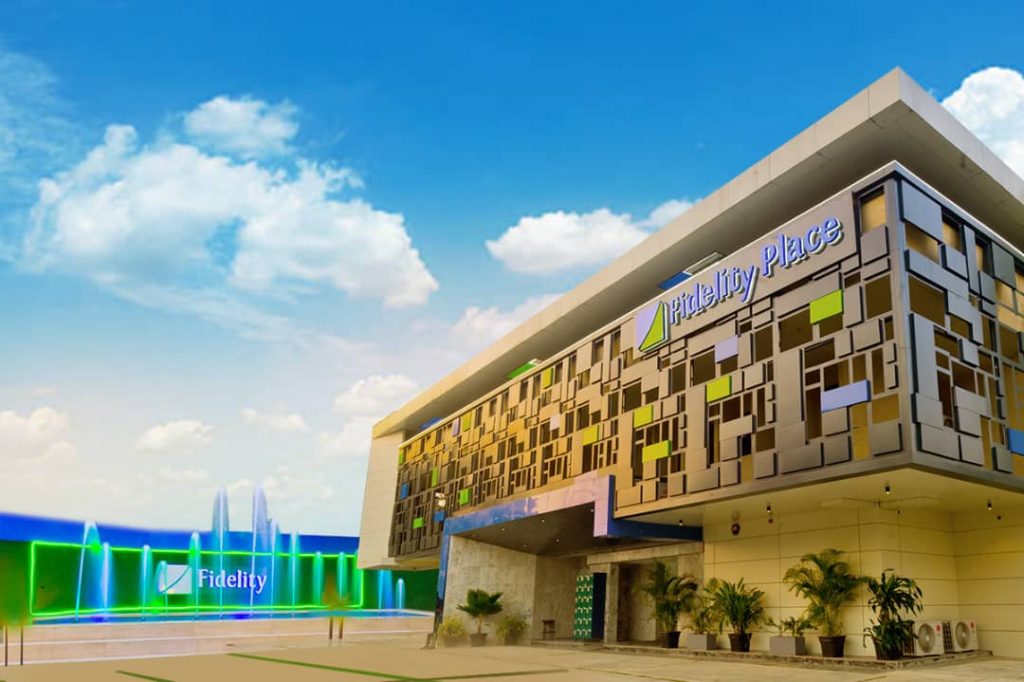Business
Fidelity, Zenith, Access makes list of most Capitalized Banks in Q3 2023
AJAGBE ADEYEMI TESLIM
SPONSORED BY: H&H
Leading financial institution, Fidelity Bank, has been listed as one of most capitalized banks in Nigeria based on Q3 2023 financial results.
According to an article published in Thisday newspapers, the bank reported a capital base of N410.75 billion as of September 2023 against N314.3 billion in 2022. Also featuring on the list are Zenith Bank, UBA, First Bank, Access Holdings, First Bank Holdings, Ecobank, GTCO Holdings, Stanbic IBTC Holdings, FCMB and Sterling Financial Holdings.
Following the announcement of the planned recapitalisation of commercial banks by the Central Bank Governor, Dr. Olayemi Cardoso, at the 58th Annual Dinner of the Chartered Institute of Bankers of Nigeria on 24 November 2023, industry watchers have anticipated the announcement of capital raising exercises by banks.
Incidentally, Fidelity Bank had taken the proactive approach by securing shareholders’ nod to raise additional capital earlier in the year. At an Extra-Ordinary General Meeting (EGM) held virtually on Friday, 11 August 2023, the bank’s shareholders unanimously approved a capital raising exercise via a Public Offer for up to 10 billion Ordinary Shares and Rights Issue of up to 3.2 billion Ordinary Shares representing one new share for every 10 shares held to new and existing shareholders respectively.
Below is the list of the 10 most capitalised banks as of September 2023:
• Zenith Bank – N1.92 trillion
The third quarter 2023 financial report of Zenith Bank Plc places the bank at the topmost position in terms of shareholders fund which it put at approximately N1.92trillion, as against N1.31trillion in 2022. The bank also ranks as Nigeria’s highest profit generator so far in 2023, with a pre-tax profit of N505 billion.
This eminent position was corroborated by Nairametrics, an online platform that noted that with a capital adequacy ratio (CAR) of 20.1 per cent as of September 2023, as against 19.8 per cent as of December 2022, the bank’s stability is not in question.
• UBA -N1.778trillion
Following Zenith Bank closely is United Bank for Africa, Nigeria’s second-highest profit generator this year, which is also the second most capitalised bank as of September 2023. The bank posted a total shareholders fund of N1.778 trillion as of Q3, 2023. In 2022, the figure was N922.1 billion, with a capital adequacy ratio of 28.3 per cent, which suggests stable financial health at the end of FY 202
• Access Holdings – N1.64 trillion
Access Holdings is another Tier 1 capital bank with a total equity of N1.64 trillion as opposed to N1.231 trillion in 2022. With this figure, Access Holdings ranks as Nigeria’s third-largest bank in terms of capital base. Its Nigerian subsidiary, Access Bank Nigeria has a total equity of N1.208 trillion as of September 2023, which is a stable figure in case of any recapitalisation exercise.
•First Bank Holdings – N1.37trillion
The ranking in terms of capital base listed FirstBank as the fourth on the list. The Third Quarter 2023 results of First Bank Holdings released in September 2023 showed that the parent company of First Bank Limited has a total equity of N1.37 trillion. However, its commercial banking arm, First Bank Limited has a capital base of N1.287 trillion. In 2022, the holding company posted a capital of 995.7billion.
•Ecobank- N1.37trillion
The bank’s third quarter 2023 performance result submitted to the Exchange last week showed it recorded a shareholders fund of N1.373 trillion as against N935 billion in the same period of 2022, placing it at the fifth position of the most capitalised banks.
• GTCO Holdings – N1.27trillion
GTCO Holdings, the parent group of GTBank has a total equity of N1.273 trillion, a year-to-date increase of 36.7per cent from the N931 billion recorded at the start of 2023.
While GTCO’s total equity is put at N1.27 billion, this is cumulative of all the group’s subsidiaries. However, its Nigerian subsidiary, GT Bank Nigeria holds a total capital base of N1 trillion as of September 2023 which is still a substantial figure ahead of any recapitalisation exercise.
•Stanbic IBTC Holdings – N471billion
Stanbic IBTC Holdings, the Nigerian subsidiary of Standard Bank Group is the parent of Stanbic IBTC Bank and it has a capital base of N471 billion as of September 2023. Its capital was N407.7 billion in 2022.
• Fidelity Bank Plc – N411 billion
With a capital base of N410.75 billion as of September 2023 against N314.3 billion in 2022, Fidelity Bank sits in quite a comfortable place ahead of any recapitalisation exercise for Nigerian banks.
In September 2023, the bank made a foray into international banking by acquiring the UK division of Union Bank of Nigeria.
• FCMB -N373.7billion
With a capital base of N373.7 billion as of September 2023 as against N275.8 billion in 2022, FCMB ranks as the 9th most capitalised bank in Nigeria. With a capital adequacy ratio of 16.0per cent as of December 31, 2022, FCMB’s CAR was just a little above the regulatory 15% required by the CBN.
• Sterling Financial Holdings – N165.84billion
Sterling Bank Limited is a full-service national commercial bank licensed by the Central Bank of Nigeria, and it’s a subsidiary of Sterling Financial Holdings Plc. The bank provides financial services to individuals, small businesses, and large corporations.
Sterling Bank’s capital base stood at N165.84 billion when total liabilities of N2.08 trillion were removed from total assets of N2.25 trillion. Its capital in 2022 was N154 billion.

